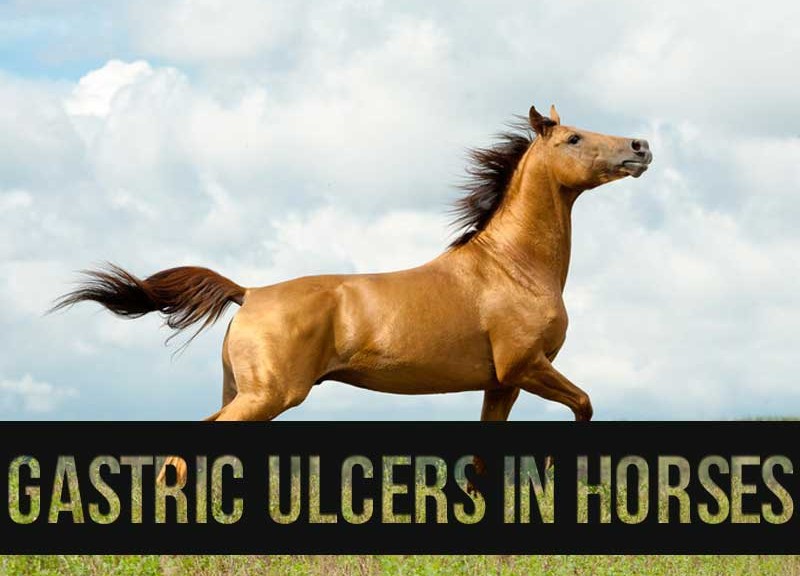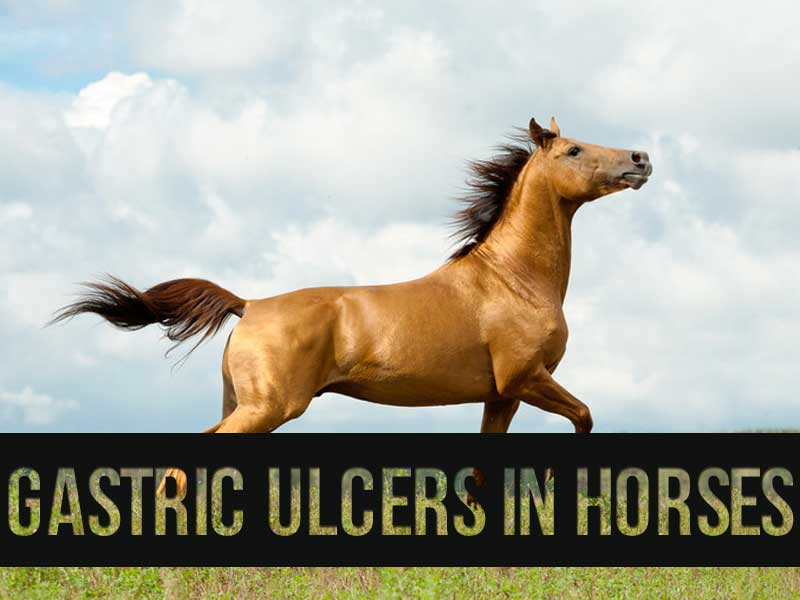Gastric ulcers in horses also known as the equine gastric ulcer syndrome (EGUS) is described as the erosion of the horse’s stomach lining due to prolonged exposure to acid produced by the stomach. Gastric ulcers can affect horses of any breed, age or size.
When suffering damage from excessive exposure to acid, a horse’s stomach lining starts by being mildly inflamed. If it keeps suffering damage, eventually there will be bleeding into the stomach and in extreme circumstances, perforation of the stomach can occur.
Clinical signs of EGUS include subtle behavioural changes, poor appetite, loss in condition (e.g. poor coat), weight loss, poor performance and mild recurrent colic. Gastric ulcers can be difficult to recognise because adult horses will often show very subtle signs. In foals, clinical signs are usually more obvious: teeth grinding, excess salivation and excessive lying down as well as infrequent nursing and diarrhoea.
If you notice your horse is acting a little bit out of character, call the vet, as ulcers can be the cause for this change in behaviour. The treatment for gastric ulcers is usually simple and very effective.
Although all the risk factors for equine gastric ulcers have yet to be determined, there are a few circumstances that seem to contribute to this disease:
- Diet – when horses are denied free access to feed or fail to eat; the excessive use of high carbohydrate diets is also a relevant risk factor;
- Excessive and intense exercise;
- Illness – gastric ulcers can occur in response to physiological stress;
- Stress – such as the one caused by stable confinement and equine transportation.
In the wild horses are constantly feeding. For this reason acid is continually secreted into the stomach, which means that prolonged periods without food to neutralise that acid can lead to ulceration. Dividing your horse’s feed into smaller portions in order to feed it more frequently or allowing it to have free-choice access to grass or hay, may help to buffer the acid level in the stomach. Making sure your horse has access to fresh water at all times and cutting down on the use of concentrated feeds may also be very helpful.
Allowing access in the stable or visibility to horses that they normally socialise with may also help reduce the risk for gastric ulcers. Owners can resort to a mirror in order to achieve this.
Consult your veterinary surgeon about the use of adequate medication to help reduce the risk of gastric ulcers before a known period of stress and to help prevent the recurrence of ulcers following treatment.
Would you like to know more about horses? Check our Equine Courses:

